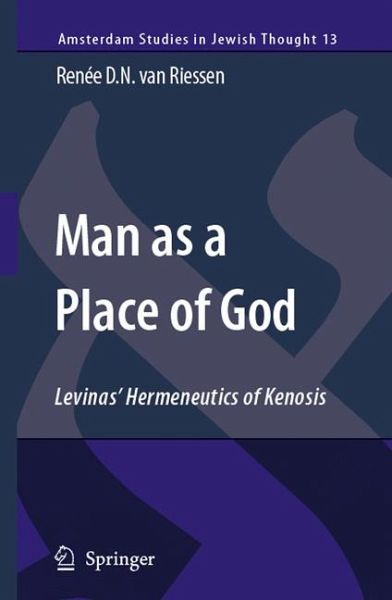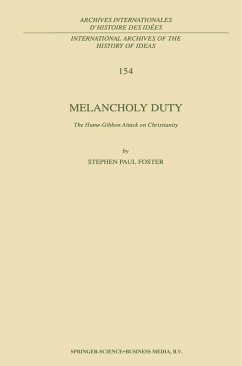
Man as a Place of God (eBook, PDF)
Levinas' Hermeneutics of Kenosis
Versandkostenfrei!
Sofort per Download lieferbar
104,95 €
inkl. MwSt.
Weitere Ausgaben:

PAYBACK Punkte
52 °P sammeln!
Man as a Place of God is an examination of Levinas' philosophy of religion in the light of his ethics and anthropology. It provides a lively introduction to the main themes of Levinas' thought and offers critical perspectives on Levinas by relating his work to that of Heidegger, Ricoeur, Rorty, Derrida and Vattimo.The focus of interpretation is the hermeneutics of 'kenosis': the subject's ability to be open towards the other to the point where man can be seen as a place of 'God', a place where the infinite attains to finite existence. Does this mean that the kenotic subject totally disappears ...
Man as a Place of God is an examination of Levinas' philosophy of religion in the light of his ethics and anthropology. It provides a lively introduction to the main themes of Levinas' thought and offers critical perspectives on Levinas by relating his work to that of Heidegger, Ricoeur, Rorty, Derrida and Vattimo.
The focus of interpretation is the hermeneutics of 'kenosis': the subject's ability to be open towards the other to the point where man can be seen as a place of 'God', a place where the infinite attains to finite existence. Does this mean that the kenotic subject totally disappears from the arena of his own life, to reach out for a sublime existence that is no longer of 'this world' - as in the philosophy of Plato, Plotinus and certain mystical thinkers? This book will argue the reverse: the kenotic sublimity developed by Levinas is in keeping with ethics, and even with concrete acts of responsibility. Also, it refers to a certain idea of God, who comes into being in a 'kenotic' way: by giving himself in the ethical experience of man and woman, regardless of their culture and religious beliefs.
The focus of interpretation is the hermeneutics of 'kenosis': the subject's ability to be open towards the other to the point where man can be seen as a place of 'God', a place where the infinite attains to finite existence. Does this mean that the kenotic subject totally disappears from the arena of his own life, to reach out for a sublime existence that is no longer of 'this world' - as in the philosophy of Plato, Plotinus and certain mystical thinkers? This book will argue the reverse: the kenotic sublimity developed by Levinas is in keeping with ethics, and even with concrete acts of responsibility. Also, it refers to a certain idea of God, who comes into being in a 'kenotic' way: by giving himself in the ethical experience of man and woman, regardless of their culture and religious beliefs.
Dieser Download kann aus rechtlichen Gründen nur mit Rechnungsadresse in A, B, BG, CY, CZ, D, DK, EW, E, FIN, F, GR, HR, H, IRL, I, LT, L, LR, M, NL, PL, P, R, S, SLO, SK ausgeliefert werden.












